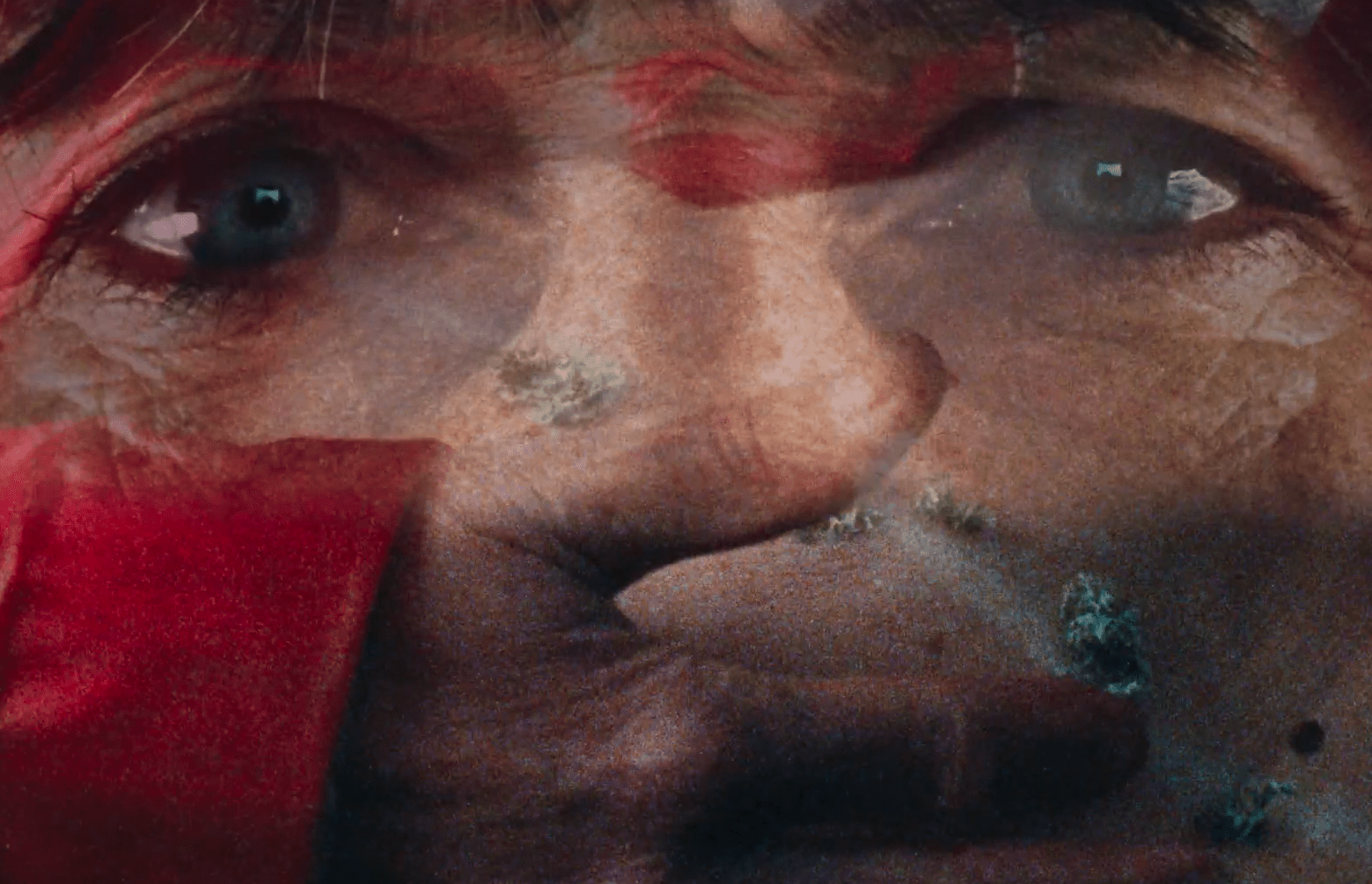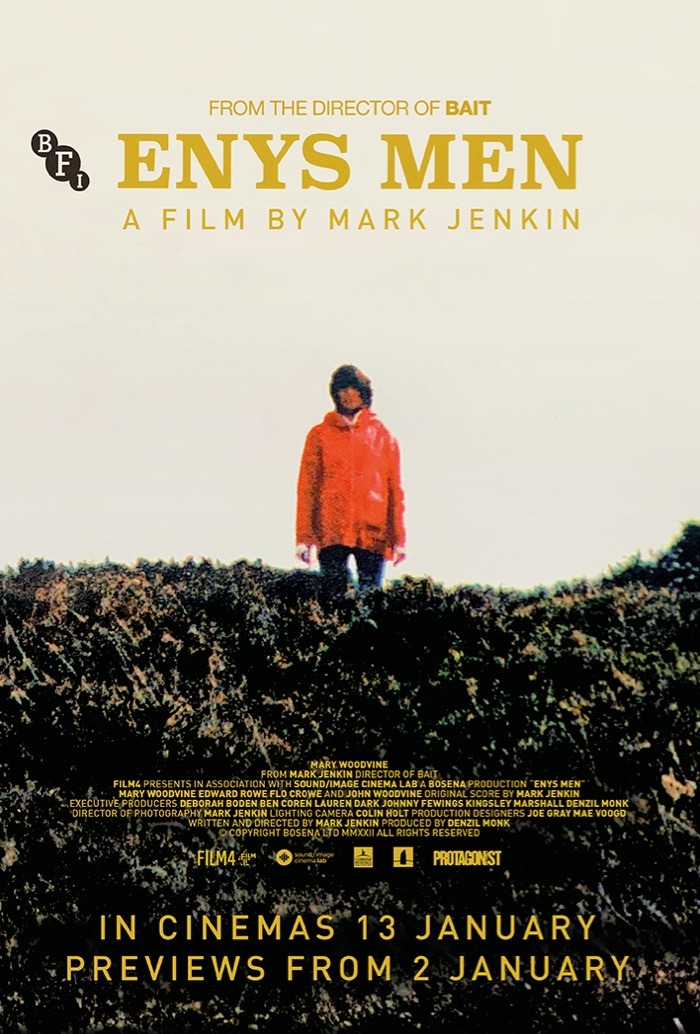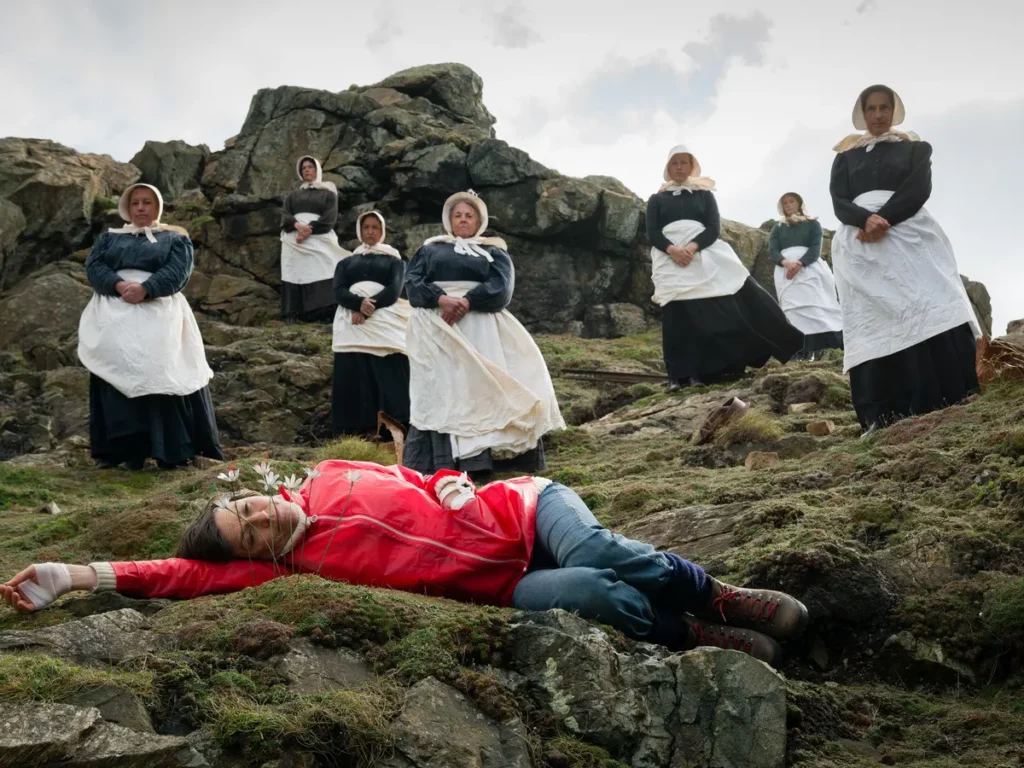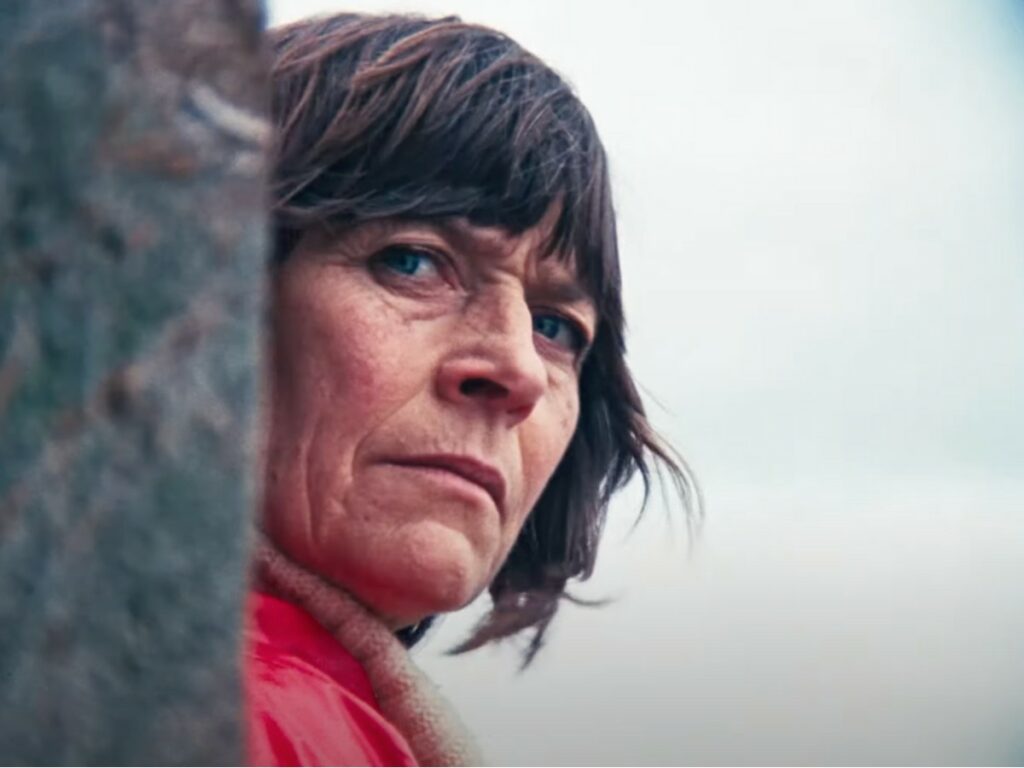Film
Enys Men (British Film Institute) [Film Review]
If you’ve yet to see a poor review for Mark Jenkin’s Enys Men (British Film Institute), it’s simply because it is a bloody brilliant film, no question.

Let’s talk about the new wave of folk horror this week and the film that has sealed the fate of this much loved but long abandoned sub-genre, Enys Men.
BFI Player is currently curating a Mark Jenkin archive, which manifests into a masterclass on creating meaningful, beautiful independent films with a strong primary focus, guaranteed to dazzle all who fall into their path. Most of these films eschew a traditional narrative in favour of montages of Cornish countryside, with poetic, labyrinthine narration. Some clock in at just a few minutes, making their message clear and concise before making a sharp exit. Viewers are guaranteed to be left feeling either melancholic or spooked. It’s a world that would encompass the music of Clinic, Broadcast, Pentangle and the Ghostbox artists and is not a million miles from the fictional village of Scarfolk.
With the feature-length Bait (2019), Jenkins shone a light on a Cornish Fishing Village and the battles therein between the old and new money. Fisherman V middle-class timeshare newcomers. For anyone of a certain age, the film shot on aged monochrome 16mm filmstock is reminiscent of public information films of the ’70s and Jon Pertwee era Doctor Who, with disjointed dialogue and hollow soundscapes. Folk Horror at its very best.
His new film Enys Men (Stone Island) continues in the same vein but this time in colour and with a more supernatural bent.
Mary Woodvine returns from Bait as a lone volunteer on a barren Cornish island. Her job appears to be to simply log the daily status of a clifftop flower, scribing “No Change” in her ledger. The 1970s setting means no mobile phones or computers, thus making her existence all the more hostile.
Those looking for another Smile, Barbarian or M3gan may sit bemused as the Volunteer makes her daily pilgrimage to the flowers and idly drops a stone into a hole repeatedly, but the more astute may discover horror in repetition and loneliness, interspersed with subtle jump scares of seemingly random islanders.
Once the flowers begin to change, and the ledger entries describe (wait for it…) lichens, the jump cuts increase, as do the imaginary (are they imaginary?) characters of ghostly miners, a nightmarish preacher and a group of sirens.
I didn’t understand it, that much is true, but I absolutely loved it.

As a love letter to the Cornish landscape and a homage to ’70s British folk horror, it is note-perfect, and as a mystery, it also scores highly. It is unclear what is haunting the Volunteer, ghosts of the past, present or future. Who is the girl on the roof? Are the miners solid figures or a figment of the Volunteer’s imagination? Is any of it real, or is it a frenzied fever dream? Whatever you want to believe, every conclusion is terrifying, even if there is no actual horror at play.
On a personal level, Jenkin’s films are 100% a breath of fresh air. As an avid fan of folk horror and unusual 1970s British cinema, the type dished out by the invaluable BFI Flipside label, films like Bait and Enys Men fill a much-needed gap.
The mid to late ’60s was a time when the films of the likes of Richard Lester were popular despite their deeply surreal aesthetics. The Knack, How I Won the War, and The Bedsitting Room dealt with heavy-handed slights to the establishment. They showed a horrific post-apocalyptic London in a fiercely comic way, recalling his work with both The Goons and The Beatles and starring a few of them too. These were unlikely attempts to entice audiences in search of comic capers. The following years continued to exhibit bizarre and surreal journeys into the British psyche that would seemingly never get the green light now; films like The Magic Christian, Little Malcolm and his struggle against the eunuchs, Permissive, Deep End, I start counting, and Symptoms.
The films of Mark Jenkin show that modern British audiences are perhaps ready once more for these films that make you work for your pleasure and as Alex Garland’s hugely disturbing and outright excellent Men proved last year, filmmakers don’t even have to set everything in the ’70s to recreate old fashioned chills. Worth noting also is the larger budget feature, Ari Aster’s Midsomer (2019). A film that, thanks to Florence Pugh and Will Poultner, introduced younger audiences to Folk Horror. The US/Swedish production presented an HD widescreen update of The Wicker Man, where the scares still originated in the actions of the weird inhabitants of a lost community. A genuinely unsettling major release.
I have yet to see a poor review for Enys Men simply because it is a bloody brilliant film, no question. Let’s hope that we are heading once more toward a golden age of Folk Horror.

Movie poster artwork for ‘Enys Men’
Director: Mark Jenkin
Writer: Mark Jenkin
Starring: Mary Woodvine, Edward Rowe, Flo Crowe, John Woodvine
Production Company: Film4, Sound/Image Cinema Lab, Bosena
Distributed by: British Film Institute
Release Date: May 20, 2022 (Cannes), January 12, 2023 (Ireland), January 13, 2023 (UK)
Run Time: ?
-

 Music6 days ago
Music6 days agoTake That (w/ Olly Murs) Kick Off Four-Night Leeds Stint with Hit-Laden Spectacular [Photos]
-

 Alternative/Rock8 hours ago
Alternative/Rock8 hours agoThe V13 Fix #011 w/ Microwave, Full Of Hell, Cold Years and more
-

 Alternative/Rock1 week ago
Alternative/Rock1 week agoThe V13 Fix #010 w/ High on Fire, NOFX, My Dying Bride and more
-

 Features6 days ago
Features6 days agoTour Diary: Gen & The Degenerates Party Their Way Across America
-

 Culture1 week ago
Culture1 week agoDan Carter & George Miller Chat Foodinati Live, Heavy Metal Charities and Pre-Gig Meals
-

 Music1 week ago
Music1 week agoReclusive Producer Stumbleine Premieres Beat-Driven New Single “Cinderhaze”
-

 Indie8 hours ago
Indie8 hours agoDeadset Premiere Music Video for Addiction-Inspired “Heavy Eyes” Single
-

 Alternative/Rock1 week ago
Alternative/Rock1 week agoThree Lefts and a Right Premiere Their Guitar-Driven Single “Lovulator”









